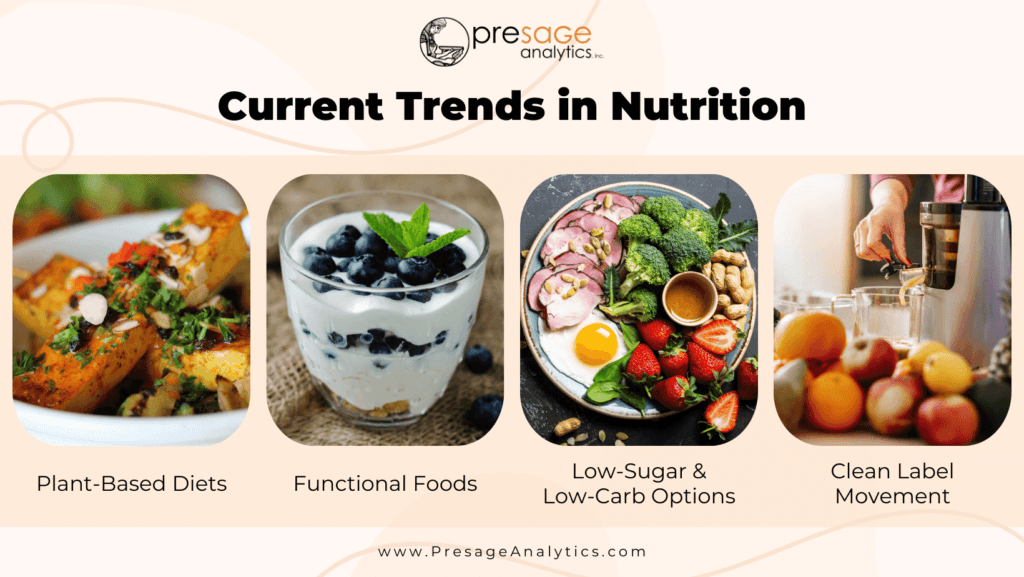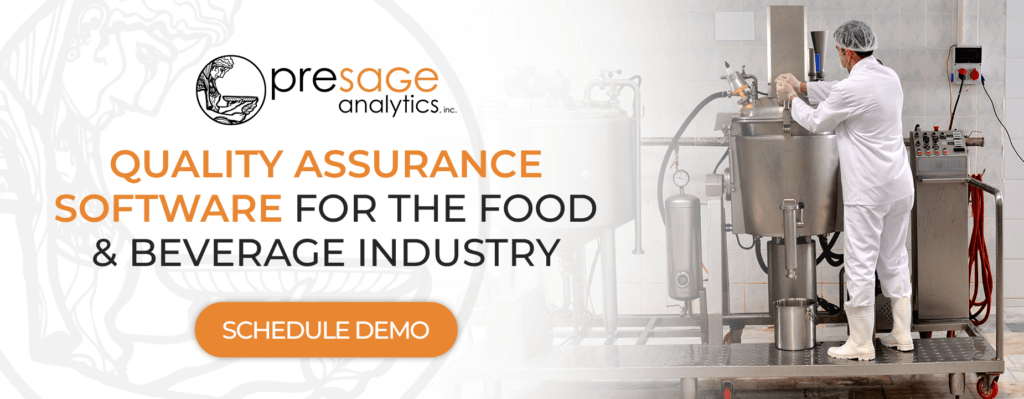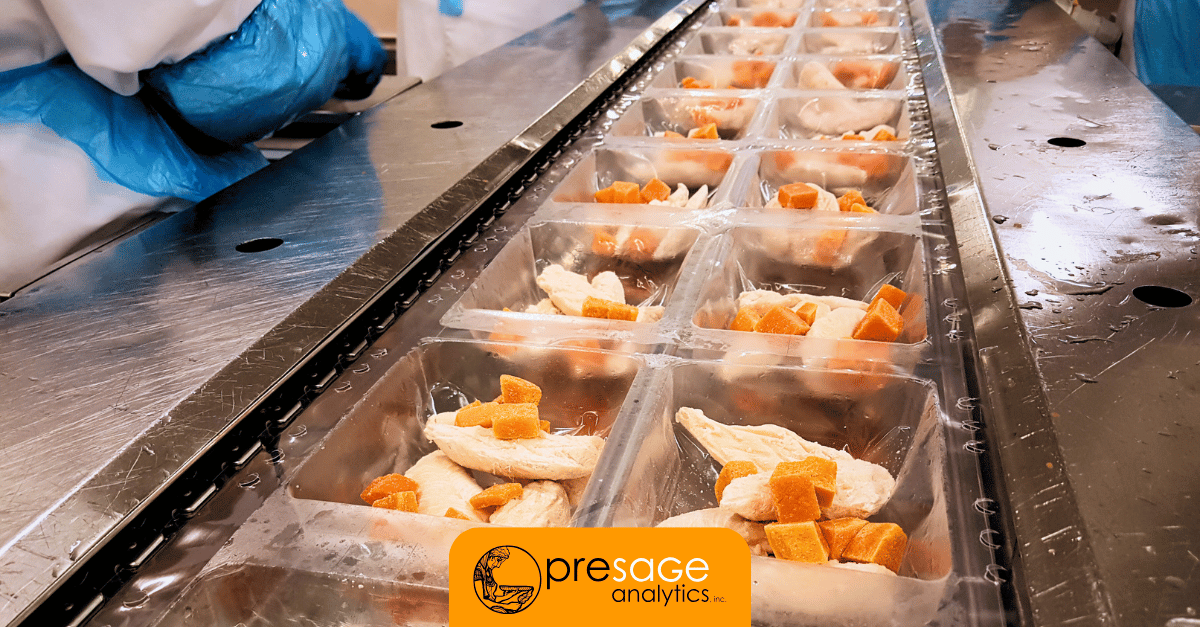Nutrition Trends and Catering to Health-Conscious Consumers

The growing demand for healthier food options is reshaping the food industry. Staying ahead of nutrition trends is crucial to remain competitive and meet consumer expectations.

Current Nutrition Trends in the Food Industry
Plant-Based Diets
The rise of vegetarian, vegan, and flexitarian diets is transforming consumer preferences. Plant-based meats and dairy alternatives are becoming mainstream, appealing to a broad audience seeking healthier, sustainable options.
- Lentils: High in protein and fiber, making them a nutritious and versatile ingredient for soups, stews, and salads.
- Tofu: Made from soybeans, it is a great source of plant-based protein and can be used in a variety of savory and sweet dishes.
- Quinoa: A complete protein containing all nine essential amino acids, perfect as a base for salads, bowls, or side dishes.
- Chickpeas: Rich in protein and fiber, they can be used in hummus, roasted for snacks, or added to curries and salads.
- Almond Milk: A dairy-free alternative made from almonds, suitable for use in cereals, smoothies, and baking.
Functional Foods
Functional foods with added health benefits, such as probiotics and antioxidants, are gaining popularity. Fermented foods and fortified snacks are excellent examples of products meeting this trend, offering both taste and health benefits.
- Yogurt: Rich in probiotics, which support gut health and digestion.
- Blueberries: High in antioxidants, which help reduce oxidative stress and inflammation.
- Chia Seeds: Packed with omega-3 fatty acids, fiber, and protein, promoting heart health and satiety.
- Turmeric: Contains curcumin, known for its anti-inflammatory and antioxidant properties.
- Kefir: A fermented milk drink that provides probiotics and beneficial bacteria for digestive health.
Low-Sugar and Low-Carb Options
Consumers are increasingly seeking low-sugar and low-carb products to maintain a healthier lifestyle. Keto-friendly and diabetic-friendly products are in high demand, providing options that cater to specific dietary needs.
- Avocado: Low in carbs, high in healthy fats and fiber, making it a nutritious and filling option.
- Eggs: Virtually carb-free and a great source of high-quality protein and essential nutrients.
- Cauliflower: Low in carbs and versatile, often used as a substitute for rice, potatoes, and pizza crust.
- Greek Yogurt: Low in sugar (when unsweetened), high in protein, and beneficial for gut health.
- Almonds: Low in carbs, high in healthy fats, fiber, and protein, perfect for snacking or adding to meals.
Clean Label Movement
Consumers prefer simple, recognizable ingredients. The clean label movement emphasizes products with no artificial additives or preservatives. This trend is driving producers to simplify ingredient lists and focus on transparency.
- Organic Apples: Free from pesticides and synthetic chemicals, offering a natural and wholesome fruit option.
- Free-Range Eggs: Produced without antibiotics or hormones, ensuring a more natural and ethical product.
- Whole Grain Bread: Made with simple, recognizable ingredients and no artificial preservatives or additives.
- Grass-Fed Beef: Comes from cattle raised on a natural diet without growth hormones or antibiotics, providing a cleaner meat option.
- Cold-Pressed Juices: Made from fresh fruits and vegetables without added sugars or preservatives, retaining more nutrients and natural flavors.
Ensuring Food Safety and Quality with Emerging Trends
As companies innovate to meet new trends, maintaining safety and quality becomes increasingly complex. Each new trend introduces unique challenges that must be managed effectively to ensure consumer safety. By adopting best practices and leveraging advanced technologies, food producers can stay ahead of these challenges, ensuring that their products not only meet consumer demand but also adhere to the highest standards of safety and quality.
- Maintaining Product Integrity: Balancing innovation with food safety standards is essential. Rigorous testing and compliance with regulations ensure that new products meet safety criteria without compromising quality.
- Traceability and Transparency: Consumers demand transparency in food sourcing and production. Implementing robust traceability systems helps producers provide detailed information about product origins and manufacturing processes, building consumer trust.
- Preventing Contamination and Allergens: Managing risks associated with new ingredients and production processes is crucial. Enhanced cleaning protocols and allergen control measures prevent contamination, ensuring safe products for consumers with dietary restrictions.

Utilizing Technology to Stay Ahead of Nutrition Trends
Technology plays a vital role in ensuring continuous quality control and maintaining product quality. Real-time monitoring allows for the early detection of issues, leading to improved response times. Data analytics enable producers to predict and respond to nutrition trends, facilitating better product development and market positioning. Additionally, technology solutions for managing regulatory compliance reduce the risk of non-compliance and streamline documentation, ensuring that all products meet the necessary safety and quality standards.
Partner with Presage Analytics
Presage Analytics offers smart quality assurance solutions, including real-time monitoring, advanced analytics, and compliance tools designed to enhance food safety and quality. We provide tailored solutions to meet the specific needs and challenges of food producers, ensuring that each client receives the most effective strategies for their unique requirements.

Schedule a Demo Today
Experience Presage Analytics’ solutions firsthand. Schedule a demo today to see how our technology can benefit your food production process and help you stay ahead of nutrition trends.





